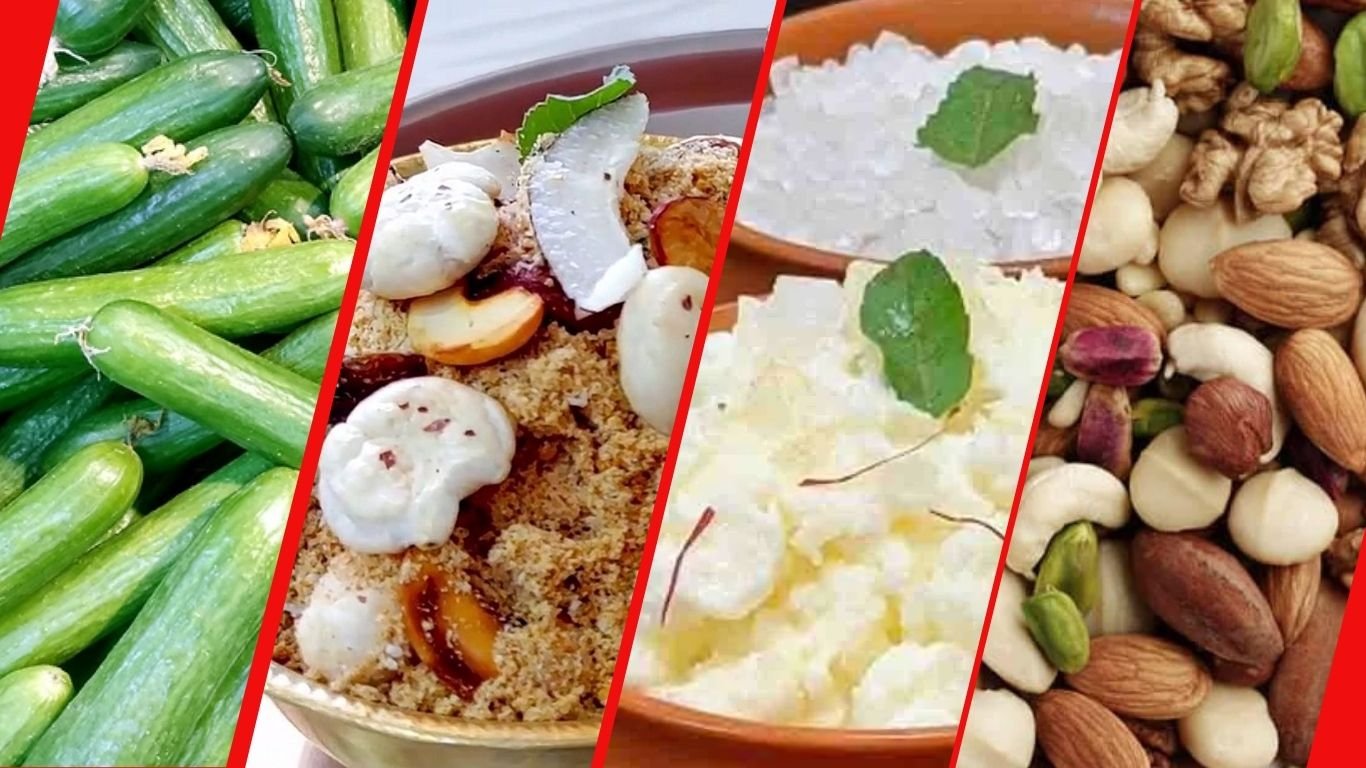
On Krishna Janmashtami, devotees across India celebrate the birth of Lord Krishna with grandeur and devotion. A well-known tradition on this day is the offering of Chhappan Bhog — 56 different food items dedicated to the divine child. But preparing so many dishes is not always possible for every devotee.
According to spiritual belief, offering just six special bhogs before the midnight birth of Lord Krishna brings the same spiritual merit and blessings as the full Chhappan Bhog. Among these contributions are Makhan-Mishri, Dry Fruits, Panchamrit, Dhaniya Panjiri, Honey, and Cucumber. Let’s understand the significance of each.
When Lord Krishna was younger, his affection for butter was inextricable, earning him the amusing moniker Makhan Chor (butter thief). On Janmashtami, devotees prepare fresh butter and mix it with sugar crystals to offer as prasad.
Belief: Providing Makhan-Mishri to the family promotes harmony, serenity, and prosperity. It is also considered a symbol of abundance and nourishment.
Dry fruits such as almonds, cashews, pistachios, raisins, and walnuts are offered to Krishna as a sign of vitality and energy. These can be presented as plain dry fruits, roasted in ghee, or made into laddoos and barfi.
Belief: This offering enhances physical strength, wealth, and well-being in the household.
Dhaniya Panjiri holds a unique place during Janmashtami. Made from roasted coriander seeds mixed with jaggery, sugar, and dry fruits, it is considered sacred and pure. After offering to Krishna, it is distributed among devotees.
Belief: Panjiri is believed to protect the family from troubles and fulfill devotees’ wishes when offered with faith.
One of the most important bhogs of Janmashtami, Panchamrit is prepared with five ingredients: milk, curd, honey, ghee, and sugar. A Tulsi (basil) leaf is often added for sanctity.
Belief: Panchamrit is consumed as prasad after being used in Krishna's abhishek, or sacred bath. It purifies the mind, body, and soul while ensuring good health and spiritual growth.
Honey is traditionally given to newborns as their first taste; Lord Krishna is offered honey at midnight, marking his divine birth.
Belief: Honey represents sweetness in relationships and harmony within the family. Offering it ensures love, affection, and unity among loved ones.
Offering cucumber during Janmashtami is an ancient practice. In some traditions, cucumber is even used to symbolize Krishna’s birth during the midnight ritual.
Belief: Cucumber signifies health, freshness, and positive energy. It is believed to invite Lord Krishna’s grace and blessings into the home.
If preparing all 56 dishes seems overwhelming, do not worry — offering these six sacred bhogs with devotion is enough to please Lord Krishna on Janmashtami. What matters most is faith and love, not the number of dishes. These offerings — Makhan-Mishri, Dry Fruits, Dhaniya Panjiri, Panchamrit, Honey, and Cucumber — symbolize health, prosperity, sweetness, and divine grace, making your celebration truly blessed.
We honor customs, culture, and interpersonal relationships that enrich our world here at Explore Real News. From classic celebrations like Krishna Janmashtami to little-known stories from throughout the world, our goal is to provide you with real, significant stories that enlighten and uplift.
Stay tuned for more Astrology updates.
Follow us on facebook, Instagram, Linkedln and twitter for Astrology tips that matter to you.